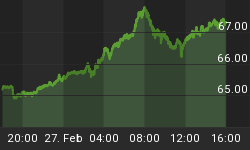The holiday shopping season started off with conflicting reports. ShopperTrak RCT reported that Black Friday sales were up 8.3%, while the National Retail Federation said that traffic was up 4.8%, but spending per shopper dropped 3.5% to $347.44. As a tie-breaker the ICSC reported that chain store sales increased only 2.5% last week. For November and December combined, the ICSC expects sales to increase only 2.5%. This would be the smallest increase since 2004. Anecdotal reports indicated that shoppers shopped early, got the deals and went home. This might explain the difference between the ShopperTrak tally of sales and other reports since its tally was only for Black Friday. It does forecasts total holiday spending to increase only 3.6%, which is down from the 4.6% increase last year.
The lack of consumer confidence could be a major factor for the lackluster results and outlook. The consumer confidence survey released from the Conference Board this week does not bode well for the reminder of the shopping season. The Conference Board reported that excluding the two months following Hurricane Katrina, consumer confidence fell to the lowest level since October 2003. Concern over the future weighed heaviest on consumers. The present situation dropped only 2.6 points to 115.4, while the expectations component plunged 11.3 points to 68.7. This was below the level following Hurricane Katrina. There was weakness in all the components that measure the future outlook. Only 12.4% expect business conditions to be better in six months (lowest since February 2001), 10.8% expect there to be more jobs since months hence (tied the lowest level over the past 15 years), 11.0% expect income to be lower (highest since July 2003). Additionally, fewer consumers expect to purchase an auto (4.7%, only the third time it was below 5% since at least 1970) or a house (2.5%, lowest since June 1994). Regionally, it shouldn't come to any surprise that the East South Central (Florida), Pacific and the Mountain (Arizona and Nevada) regions experienced the largest drops in confidence. All experienced drops of twenty points or more.
The Federal Reserve released the latest Beige Book on Wednesday. Seven of the twelve districts reported a slower pace of economic activity. The reports indicated that retail spending was soft and most retailers expect a slow holiday season. The manufacturing sector was mixed. Residential real estate continued to be under pressure due to the supply of homes. While commercial real estate continued to hold up in most districts, there were indications of leveling off in a few districts. Auto sales were characterized as "flat to down, with contacts from several Districts expecting declines going forward." Additionally, "Most districts reported that retailers expect growth in retail sales to be modest at best." The report also mentioned that "several reports indicated that retail inventories have risen a bit of late and were higher than desired levels." This is a surprise since analysts have been optimistic regarding inventory levels.
On Wednesday, the market rallied because Federal Reserve Vice Chairman Donald Kohn said that "the degree of deterioration that has happened over the last couple of weeks is not something that I personally anticipated." In light of these developments the Fed will have to be "flexible and pragmatic." Kohn's statement put another rate cut back on the table. While rate cuts have been the magic elixir in the past, it is these easings that created the credit crisis we have now. Unfortunately, it appears that there is more of a crisis of confidence over structured finance and the ability of rate cuts to have the same impact as before should be questioned.
The likelihood that the economy slips into recession next year is very high. Those that expect the economy to avert recession point to the labor market and the strength of the third quarter economic growth. The fact that the drop in the housing market didn't impact consumer spending over the past year does not mean it won't have an impact. Up until this summer, most homeowners were still able to tap home equity or refinance their mortgage if it was about to reset to a higher rate. Those days are over. The ability of consumers to "charge it" has dropped off considerably and will likely get worse before it gets better as delinquencies have started to rise in auto loans along with credit cards. Meanwhile, the lenders are still trying to figure out what is on their books and how much of the off-balance sheet structures they might have to bring back on their balance sheet. Until that is solved, their ability to extend credit aggressively is curtailed. Its likely that the labor market will not be as robust in the future. Several financial companies have announced layoffs. And these are likely high paying jobs that are being eliminated. Additionally, temporary employment has been dropping over the past several months. This is usually a future indication of companies' willingness to add staff. All economic data will be under increased scrutiny until the next FOMC meeting on December 11, and next Friday's employment report will be one of the most important.















